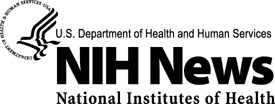 Infants Capable of Learning While Asleep
Infants Capable of Learning While Asleep
Right Click to Download MP3 File
Brief Description:
Newborn infants are capable of a simple form of learning while they're asleep, according to a study by researchers funded by the National Institutes of Health. The finding may one day lead to a test that can identify infants at risk for developmental disorders that do not become apparent until later in childhood.
Transcript:
Fritz: Scientists funded by the Eunice Kennedy Shriver National Institute of Child Health and Human Development have recently performed a study to determine if infants can learn while they're sleeping.
Fifer: What we've been investigating is how babies begin to take in information about their environment right after birth.
Fritz: Dr. William Fifer is a research scientist in the psychiatry department at Columbia University in New York. He says being born is perhaps the most significant environmental transition humans make.
Fifer: And babies have to learn very quickly how to adapt to this new surrounding. That includes both the environment they meet while they're awake and that environment including their own internal systems that they have to learn very rapidly to deal with while they're asleep. So we designed a study to investigate whether, in fact, they could demonstrate simpler forms of learning while they were asleep. And that's what they did.
Fritz: Dr. Fifer, who led the study, explains that researchers played a tone, while a machine blew a faint puff of air at a sleeping infant's eyelids. The infants' reflex was to squeeze their closed eye lids tighter. Fairly quickly, most of the infants studied--24 out of 26--would scrunch their faces in response to a tone that was not accompanied by an air puff.
Fifer: The fact that in this study they learned how to associate a tone with a puff of air is nothing you would meet in the real world, but it demonstrates the fact that this kind of learning is done by babies and, in fact, is something that they might do frequently.
Fritz: Dr. Fifer says it is important to determine how quickly babies can learn a behavior and how long they can remember it. He adds that this research may also have implications for identifying developmental issues in infants.
Fifer: We don't have very good tools right now to really quantify how well the brain is developing right after birth. And this provides a way to do -- ask questions of babies while they are asleep, in a state that they are spending most of their time in, in fact, and one in where we can ask these questions both rapidly and non-invasively. So, for example, in this conditioning study, you need an intact cerebellum in order to demonstrate this learning. We know that other childhood neurodevelopmental disorders, as in autism and attention deficit disorders, also have cerebellar abnormalities, so perhaps this kind of a probe could be used to assess vulnerability for those conditions.
Fritz: It is not known whether the learning demonstrated in this study is unique to infants or could also occur in adults. Dr. Fifer adds that the more elaborate kinds of learning that are required to speak a new language or appreciate music are different.
Fifer: But that isn't to say that we can't ask more interesting and complicated questions about what the brain is doing while it is sleeping. We already know that a good deal of rehearsal of what's gone on during the previous day is done during sleep; memories are reactivated and shaped during sleep, and for a baby, REM sleep by itself is a very stimulating condition which many believe is, in fact, it serves a major purpose by stimulating neuronal connections during sleep.
Fritz: Dr. Fifer is hopeful that this kind of research may someday yield results to help indentify babies at risk for sudden infant death syndrome or SIDS, or have applications for patients who are in comas. For more information on this study visit www.nichd.nih.gov . This is Craig Fritz, National Institutes of Health, Bethesda, Maryland.
